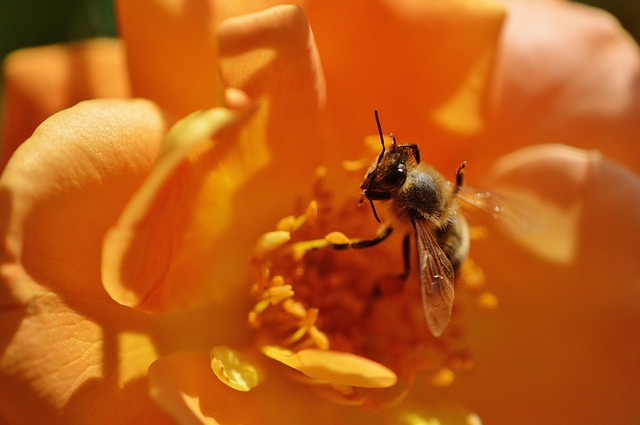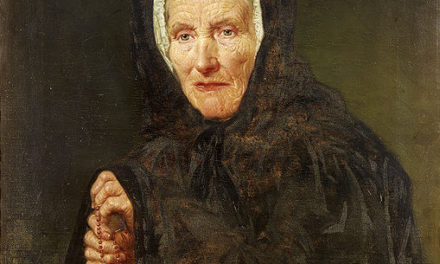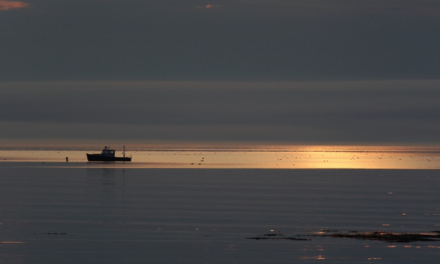It’s after midnight when my plane finally lands. By the time I get out to the curb to catch the shuttle bus to the offsite parking, it’s another 30 minutes. The sky is pitch-black.
“But I’ve only been parked in the lot for seven days,” I say to the attendant when I pull up to the booth to pay and she gives me the total I owe.
“Your ticket says 14 days,” she notes.
“There must be a mistake,” I reply, confused. “Maybe the ticket is wrong.”
“The ticket has a date and time stamp. It’s right,” she says politely. The woman has gentle eyes. Her face is weathered, lined from the sun, and it crinkles like paper. Wire-rimmed glasses frame her face.
I haven’t slept. I’ve eaten only a pack of salted peanuts on the plane. It’s taken two flights and two layovers to get back home.
“Let me show you my boarding pass,” I respond, rummaging through my bag and pulling out the flimsy paper.
“This says you went from Los Angeles to Honolulu four days ago,” she says. “You’ve been parked in the lot for 14 days. What about the other days? Did you go someplace before?” Her brown eyes are attentive and steady.
I pause for a moment, then another moment.
“Yes! I did,” I blurt out as if I suddenly remember where I misplaced something. “I’m sorry…I haven’t slept…Traveling has been exhausting.”

“Rose” reads the name on the tag pinned to her collared short-sleeve shirt. Her cropped gray hair is tucked behind her ears. She looks at me gently, earnestly, genuinely trying to help. A hardcover book titled Find Salvation in the Lord sits upright on the counter window facing the drivers who pass by.
“My brother …” I respond. “He has cancer, and we all went on vacation with his family, with his two kids aged 10 and 7 and his wife, but nobody mentioned a word about his illness. Nobody’s talking about it. Everyone acts like everything’s fine,” I continue. “But nothing’s fine. He has cancer, a two-inch tumor in his colon—stage 3.”
A knot seizes in my throat. My eyes start to water. I bite my lip like a child, trying to hold back the tears, but they slalom down my cheeks and I taste the salt on my chapped lips. My hands are clasping the top of the steering wheel while I sit at the airport parking lot gate with tears streaming.
“I’m a minister,” Rose tells me. “Maybe this is why God has me in this booth right now.”
With determined hands, she quickly unlatches the small door to her booth. She moves toward my car, leans in my open driver’s-side window, and with automatic precision as if taking directive from a higher force, she places her warm hands on my forehead. “Dear Lord, Creator of all, please help this woman get home tonight,” she says, bowing her head with her eyes closed. “Please help her handle this situation,” she continues. “Please help her brother …with Your guidance all things are possible.
Then she’s silent.
We’re both quiet. Her head remains bowed. I’m sitting still as stone as the warm summer night air gently brushes us.
“Amen,” she finally says as she lets out a breath, releasing her hands and taking a step back. Now she’s standing straight like a rod. Silent. Centered. Clear-eyed.
I glance again at her name tag: Rose.

In our family, the truth didn’t rise. Truth was banished—ignored and dismissed. We didn’t speak
of problems or sadness or gritty reality; we didn’t even acknowledge that it existed. Problems were ignored like a child sent to his room. We learned to be good—to please—at the expense of our true feelings, our true selves.
Growing up, we all sat properly at the dinner table and spoke “pleasantly” while we used our forks correctly, our napkins folded neatly in our laps. “Pass the rice, please,” we’d say. “Looks like it’s going to rain.”
And with all the focus on how we should be, on exterior appearances and the “proper” way to act—don’t make waves; don’t upset your father; don’t talk about this and don’t talk about that; just don’t talk at all!—the true inner self was edged out until it withered, and slowly died.
But nothing can heal if it doesn’t come to the surface—if it doesn’t rise. Nothing can get better if you don’t tell the truth. When you can’t tell the truth, you can’t be known and loved for the real you. You play a role instead of being real. You bathe in muddy water, and then your cells call out: Listen to me! Listen!
The cells call out because we need to tell the truth about the feelings stuffed inside our stomach, inside our body, inside ourselves.
And it’s only through our interactions with other people that things come to the surface and rise to be healed. Because through our interactions with others we’re also able to be heard and seen and held in acceptance, and to let out our vulnerable selves. Like in this very moment right now with Rose.
And so, in this airport parking lot, under a starlit sky with a parking lot attendant named Rose, I’m reminded that God works through other people. And we never know where or when or how—and it’s often when we least expect it, in ways we cannot predict or fathom.
The Divine is an active, ongoing presence in our lives and is always trying to communicate to us. If you’re open and ready to receive divine experiences, you will encounter them. The more you acknowledge the miraculous and mystical nature of everything, the more it increases, and the more attuned you become to the signs it’s giving you.
And we then begin to realize there’s a larger supreme wisdom that knows more than we do, working behind the scenes guiding our lives (even though it might not always seem apparent), and in fact we’re being accompanied, watched over, and assisted on our path to expand and live more deeply in our truth, in our real selves.
“Thank you, Rose,” I say. “Thank you.” And I put the car in gear to edge forward out of the parking lot.








This was stunning ! ( I thought, at times, is she talking about my family ?) I loved every word.
Lovely. Thank you.
Even at a distance you melt my heart. Your soul truly is more luminous then the sun.